Indigenous Governance Database
Leading Native Nations
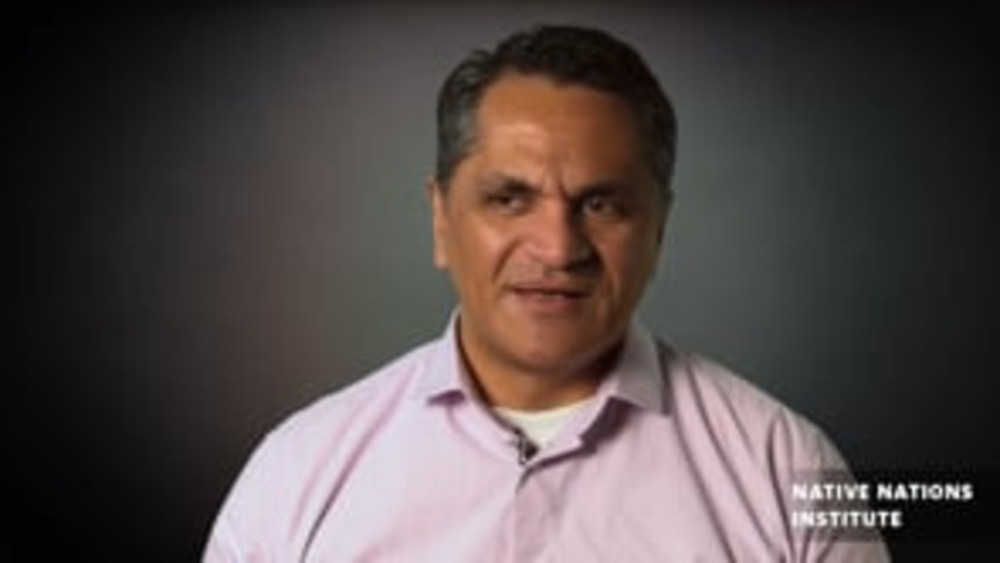
Robert Joseph: History of Maori Governance and Self-Determination
In this interview, Māori barrister and Senior Lecturer at The University of Waikato Te Whare Wānanga o Waikato, Dr. Robert A. Joseph offers his expert analysis of governance and law through the historical perspective of Māori self-governance. Dr. Joseph gives a summary of the complexities…
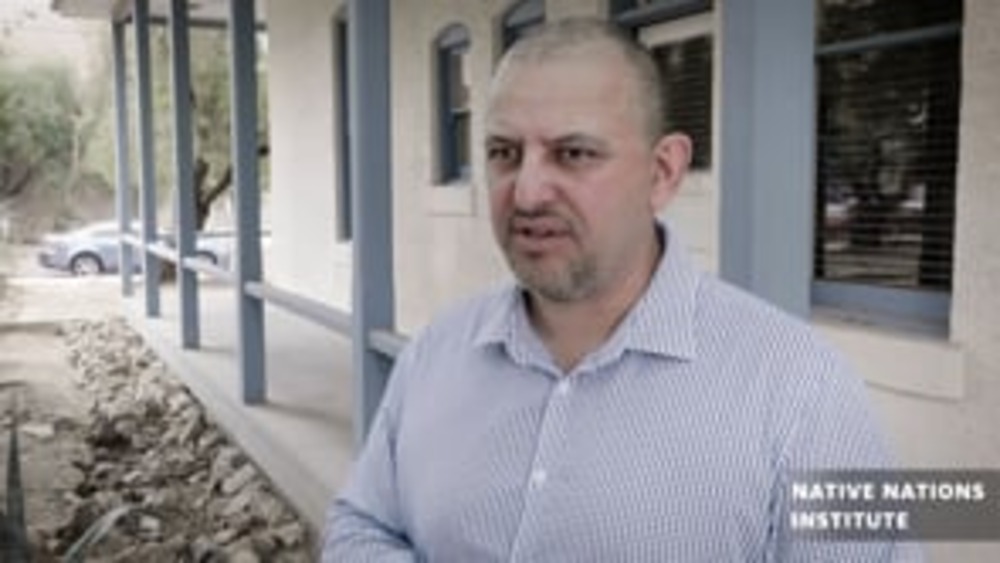
Jason Mika: Maori Governance and Maori Economy
Jason is a Fulbright scholar in the US from August 2019 to January 2020 visiting the Native Nations Institute (Aug-Oct) at the University of Arizona and the Woods Institute for Environmental Policy at Stanford University (Oct-Jan). Jason is an Indigenous entrepreneurship researcher from Massey…
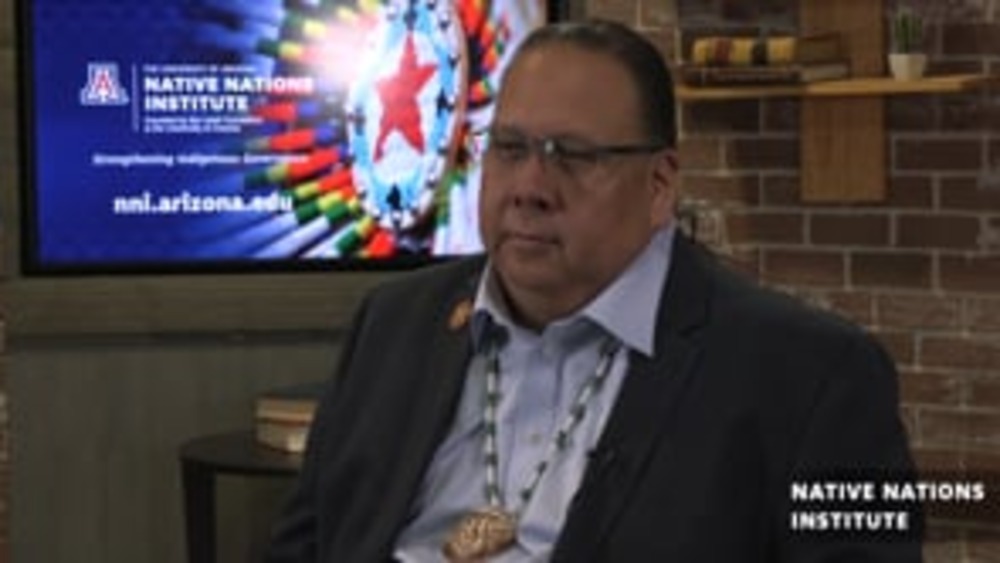
Stephen Roe Lewis: Effective Tribal Leadership for Change
Stephen Roe Lewis has been serving two terms as the Governor of the Gila River Indian Community. He follows a strong tradition and family legacy of leadership for the Akimel O’otham and Pee-Posh people in this desert riparian region of Arizona. Governor Lewis has worked on numerous political…
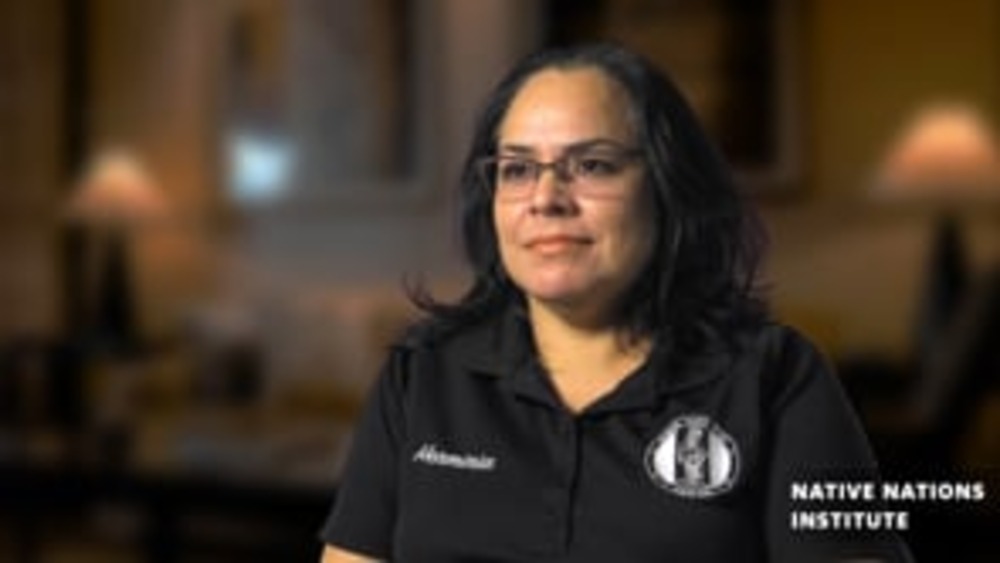
Herminia Frias: Working Toward Effective Native Leadership
For years at Pascua Yaqui Tribe, Herminia Frias has remained a consistent leader in tribal government. She became the first woman elected Chairwoman and youngest to serve the position. After a contentious term with the tribal council, she was removed from office but then immediately returned to…
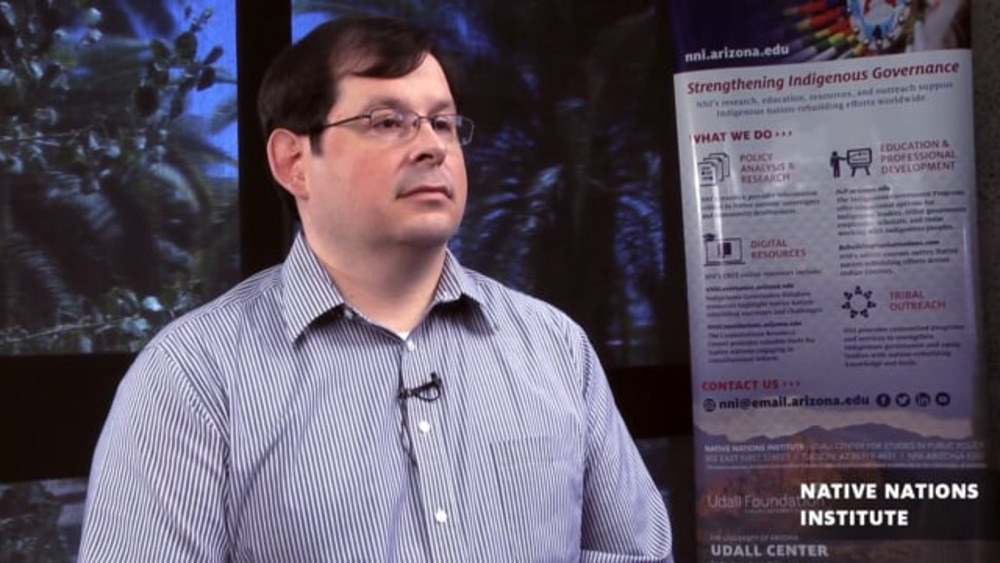
Wayne Ducheneaux: Working with Indigenous Governance
Wayne Ducheneaux II (Cheyenne River Sioux Tribe) sits down with Native Nations Institute to discuss his array of experiences working for the Cheyenne River Sioux Tribe and in the work toward helping other Native Nations efforts with indigenous governance. A former Tribal Administrative…
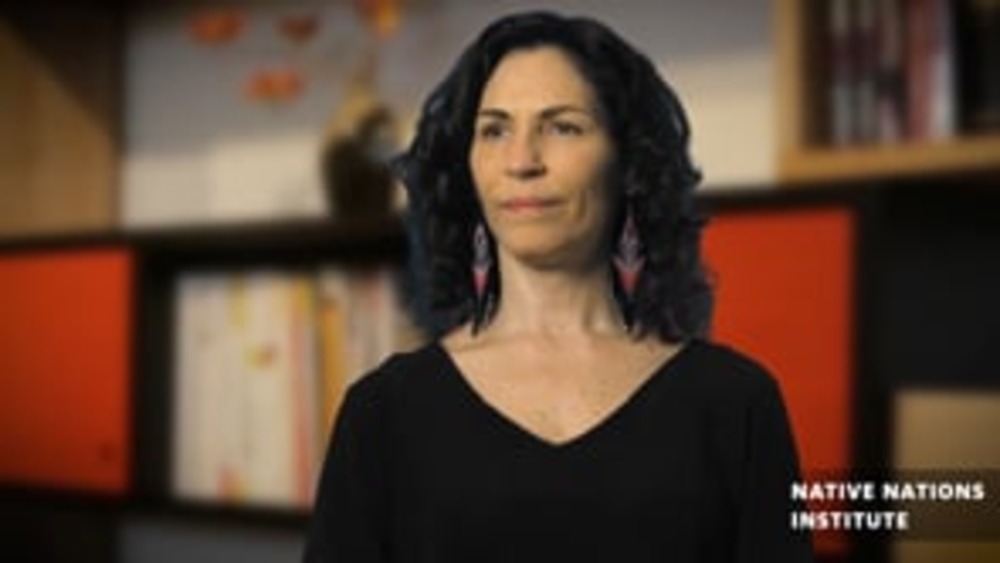
Shannon Keller O'Loughlin: Native Leadership and Lasting Commitment
Shannon Keller O'Loughlin, Choctaw Nation of Oklahoma, is an attorney and the Executive Director of the Association on American Indian Affairs. Shannon was also the former Chief of Staff, National Indian Gaming Commission, a member of President Obama’s NAGPRA Review Committee, and a Cultural…
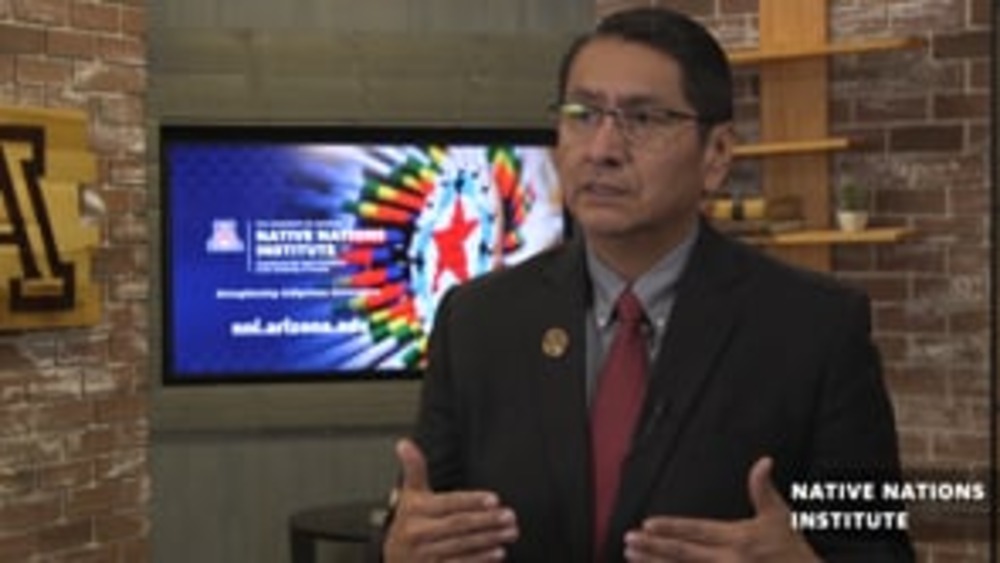
Navajo Nation President Jonathan Nez: Native Nation Building for the Navajo Nation
Navajo Nation President Jonathan Nez visited the University of Arizona and gave his views on making governance work for people in he Navajo Nation. In this brief interview with NNI the President offered his thoughts on Native Nation Building and the way it is utilized for the…
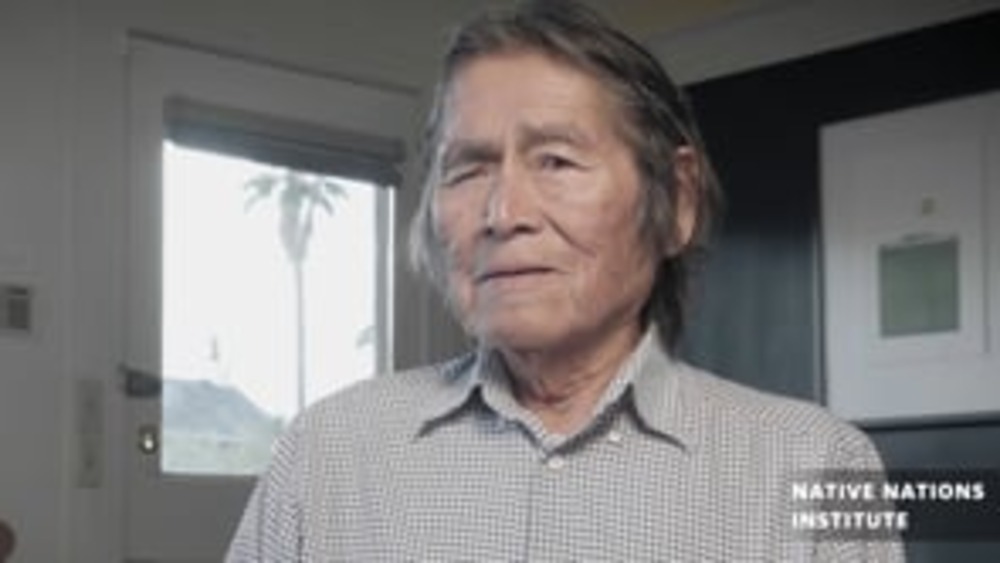
Vernon Masayesva: Self-Governance and Protecting Water
Former Tribal Chairman of the Hopi Nation and Executive Director of Black Mesa Trust, Vernon Masayesva relays his thoughts about advocating for self-governance and protection of water rights for Indigenous people. His pursuits in holding accountability of mining in Hopi territory has made Vernon…
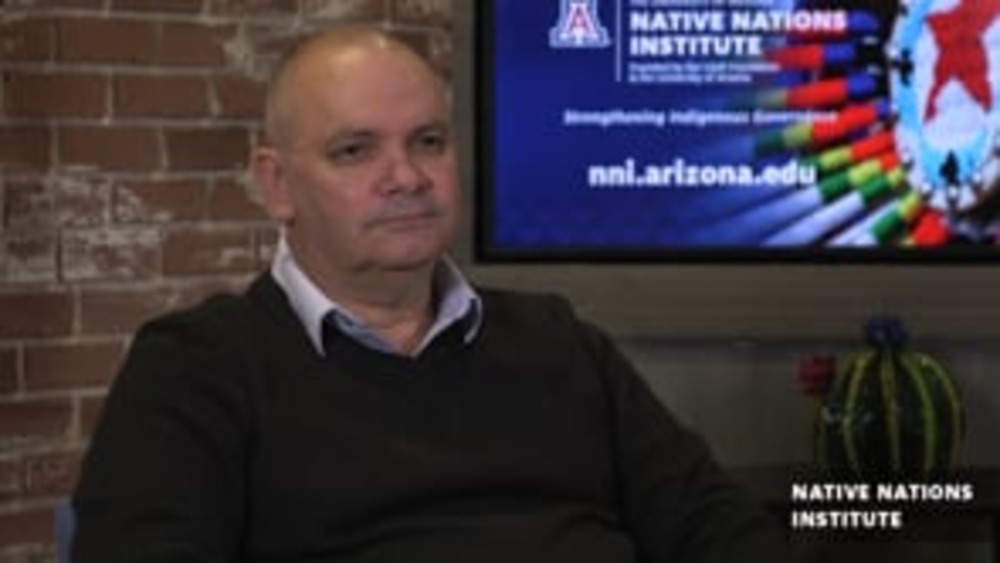
Daryle Rigney: Asserting Cultural Match and Native Nation Building in Australia
Daryle Rigney brings his expertise and first-hand experiences as a citizen of Ngarrindjeri Nation in South Australian to share his thoughts about Native Nation Building for the Ngarrindjeri Nation. He is a Professor of Indigenous Strategy and Engagement at College of Humanities Arts and…
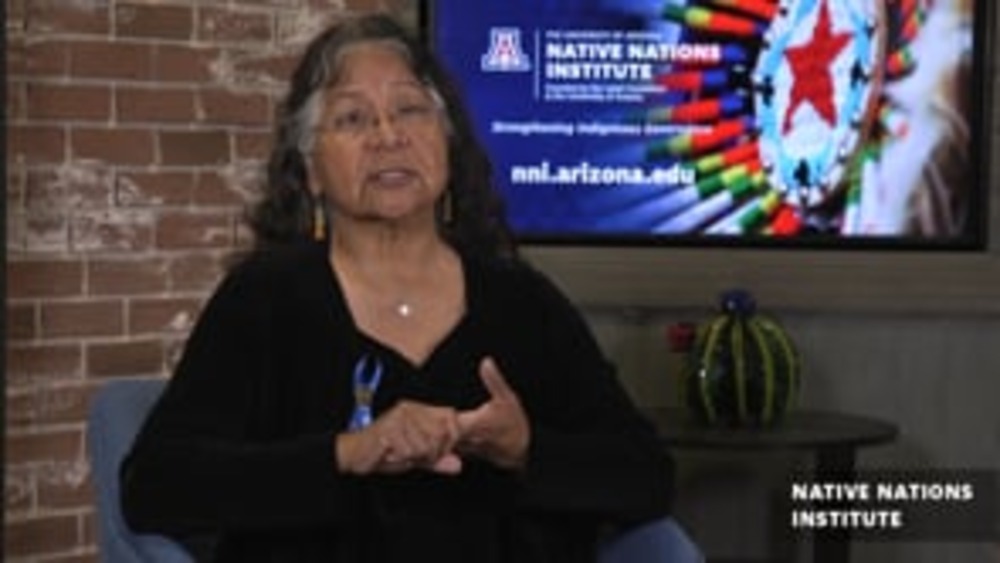
Diane Enos: Endurance through Native Leadership
Diane Enos is an Attorney, Councilwoman & Former President of Salt River Pima-Maricopa Indian Community. She has also served as Vice President of the Inter-Tribal Council of Arizona, Chairwoman of the Arizona Indian Gaming Association, and as a Western Area Delegate to the Tribal Justice…
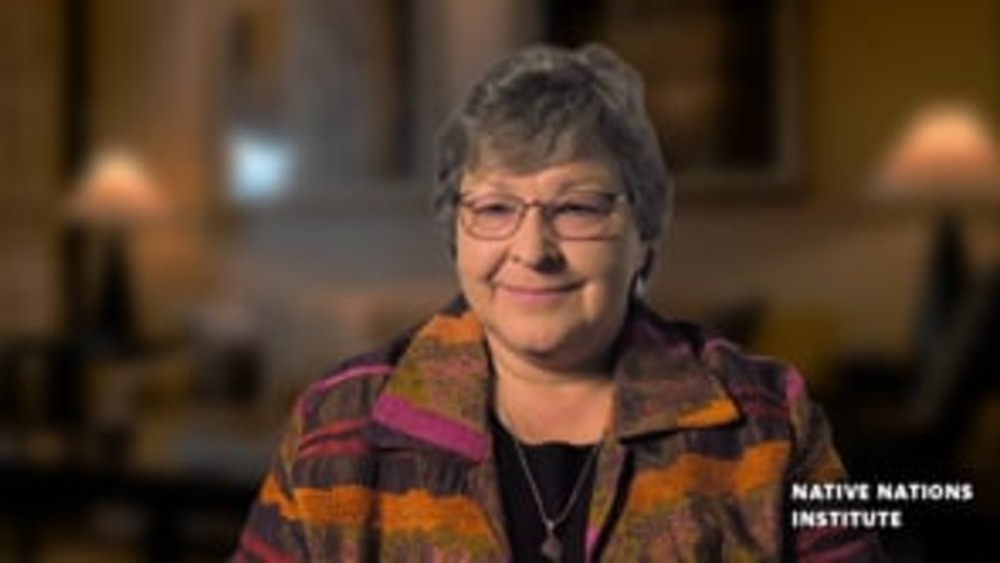
Karen Diver: Native leadership and Indigenous governance
Karen Diver is a former Chairwoman of the Fond du Lac Band of Lake Superior Chippewa and former Vice President of the Minnesota Chippewa tribe, while also served as an adviser to President Obama as his Special Assistant for Native American affairs. Her incredible career as renowned Native…
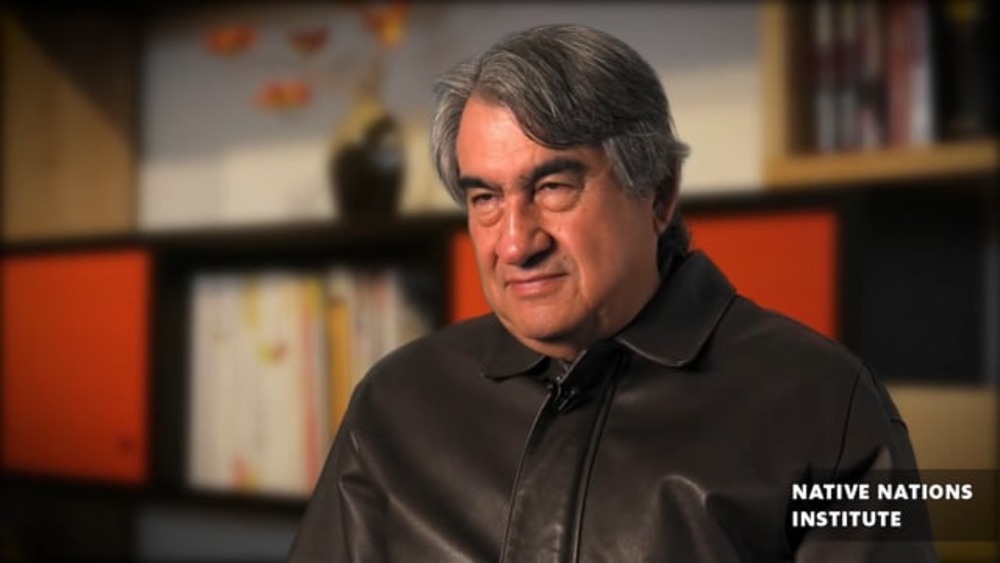
Greg Cajete: Indigenous governance and sustainability
Greg Cajete, Tewa of the Santa Clara Pueblo and a renowned scholar and author on indigenous education serves as the Director of Native American Studies at the University of New Mexico. His works have merged native history, cultural practices, and knowledge into the cross section of education…
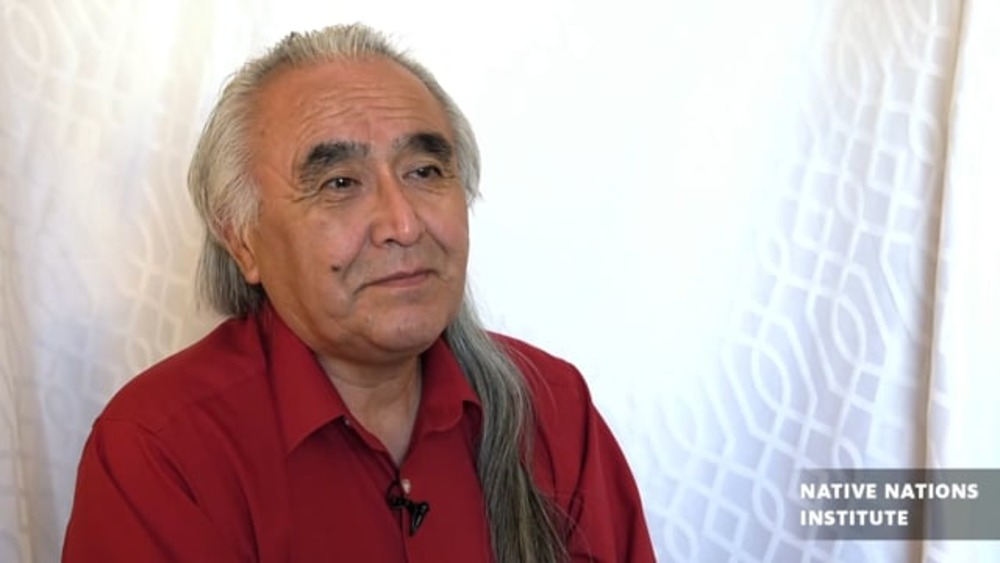
Jerry Isaac: Native Leader Experiences in Alaska
Jerry Isaac has been on the forefront of shaping indigenous governance in Alaska as former President of Tanana Chiefs Conference, former Chief for the Native Village of Tanacross, and a Board Member of Doyon Limited. He offers his perspectives about being a good leader and the…
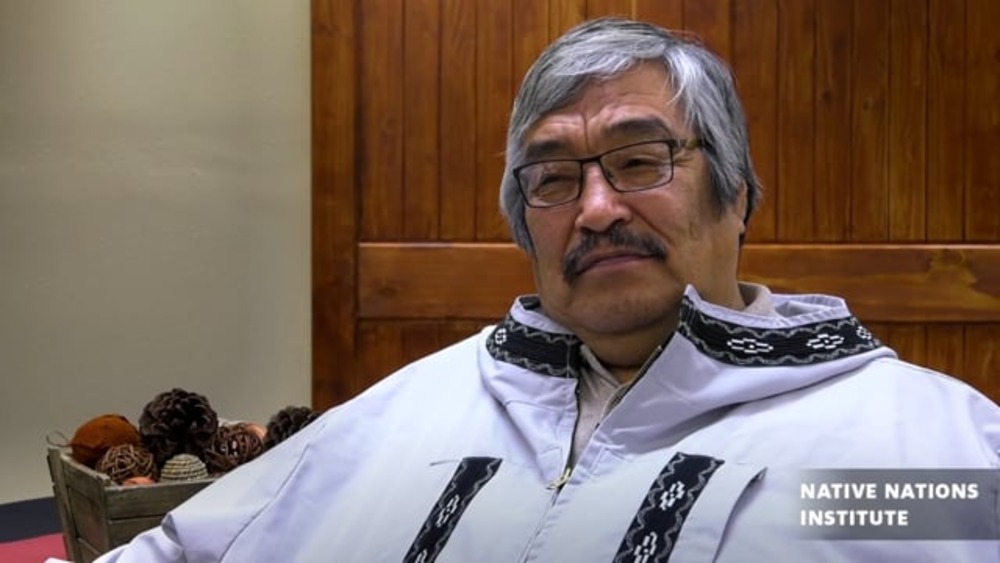
Mike Williams: Alaska Native governance and a healthy culture
Mike Williams is a well known indigenous leaders from being a Chairman and Vice-Chair of the Alaska Inter-Tribal Council as well as Chief of the Yupiit Nation. Mike offers his impressions about a variety of topics related indigenous governance including leadership, traditional governance,…
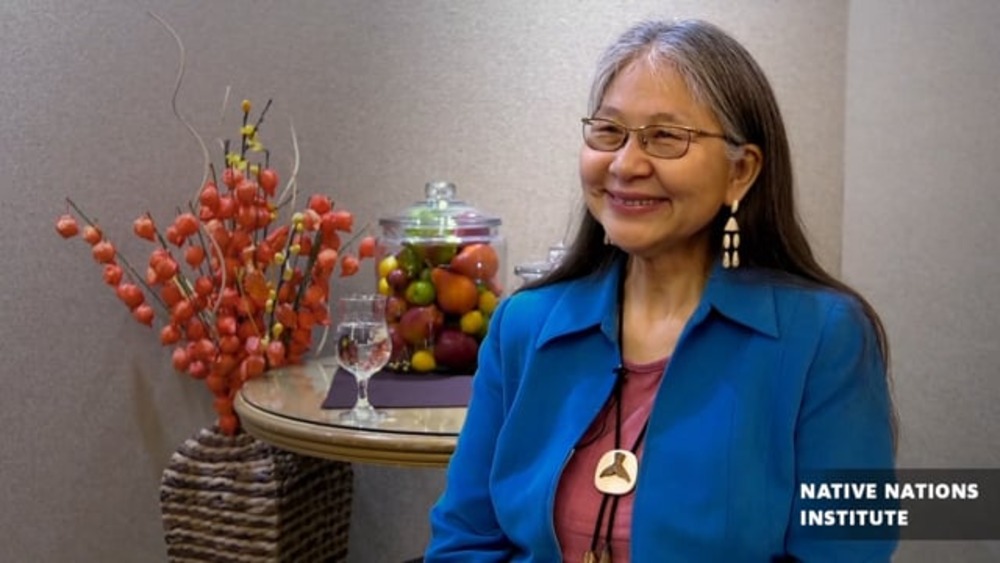
Theresa Arevgaq John: Alaska indigenous governance through traditions and cultural values
Theresa Arevgaq John is a well known Y’upik cultural advocate and Associate Professor in Indigenous Studies and the Department of Cross-Cultural Studies at the University of Alaska Fairbanks and has intimate knowledge about cultural practices within Indigenous governance. She advocates…
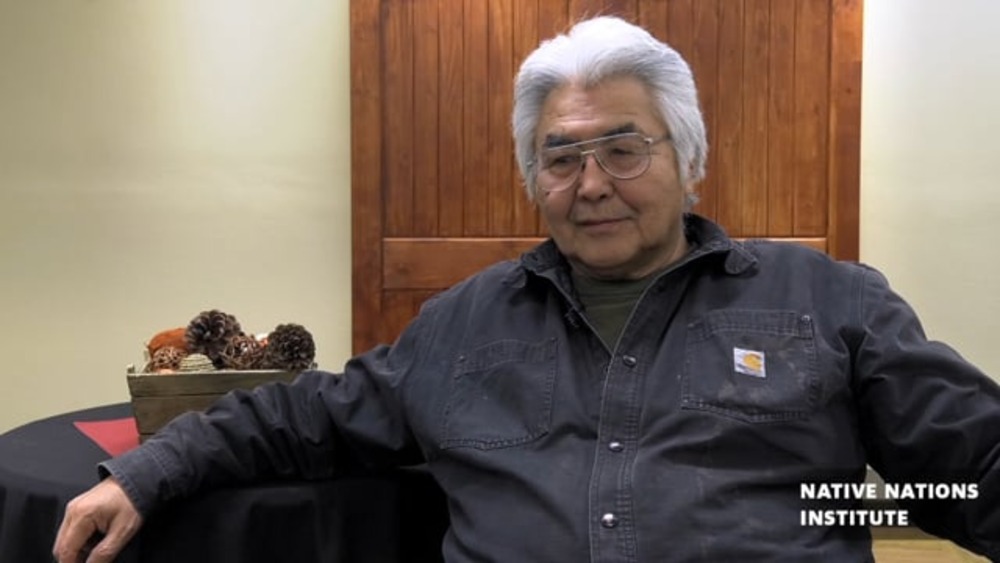
Wilson Justin: Leadership with Cultural Knowledge and Perseverance
Wilson Justin is a cultural ambassador for Cheesh’na Tribal council and serves as a Vice Chair Board of Directors for Mt. Sanford Tribal Consortium. He relays his expertise and perspective on the intricacies of Indigenous governance in Alaska through adapting cultural traditions, creating a…
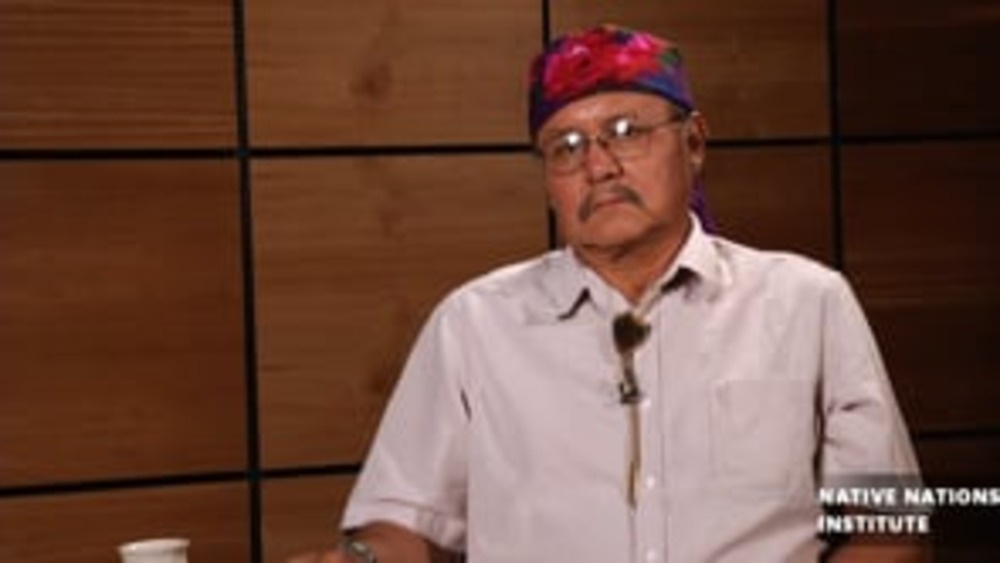
Avery Denny: Origins of Navajo Leadership
Avery Denny is a member of Diné Medicine Man’s Association and is faculty at the Center for Diné Studies at Diné college Diné hatáli. As an instructor for over 29 years, he has taught courses on herbology, holistic healing, and Diné culture, oral history and philosophy. Avery…
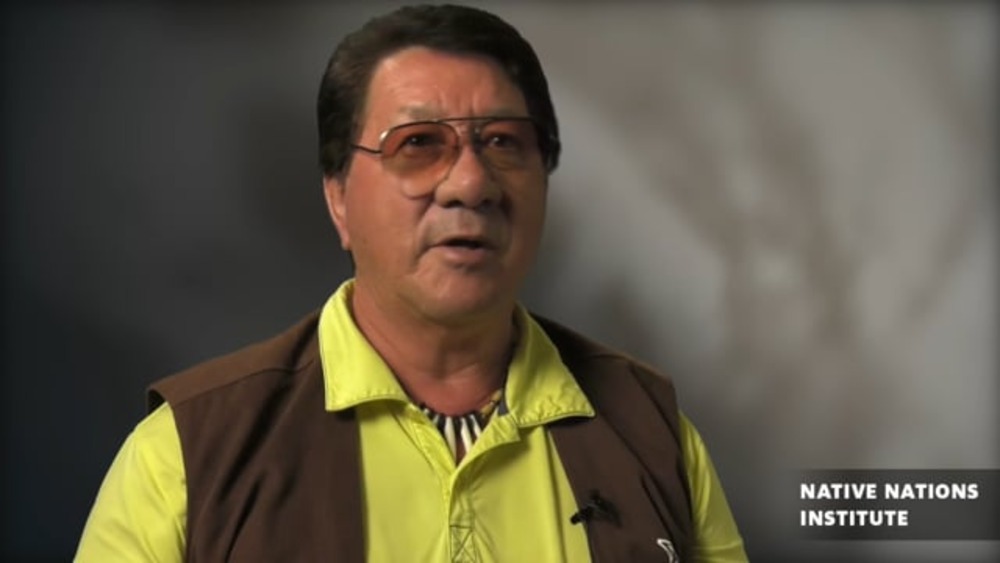
Michael Kanentakeron Mitchell: Stories and Reflections on Indigenous Governance
Former Grand Chief Michael Kanentakeron Mitchell of the Mohawk Council of Akwesasne recently stepped down from his role as Grand Chief after decades of building a strong independent jurisdiction. Chief Mitchell offers some of his stories and reflections in indigenous governance that…
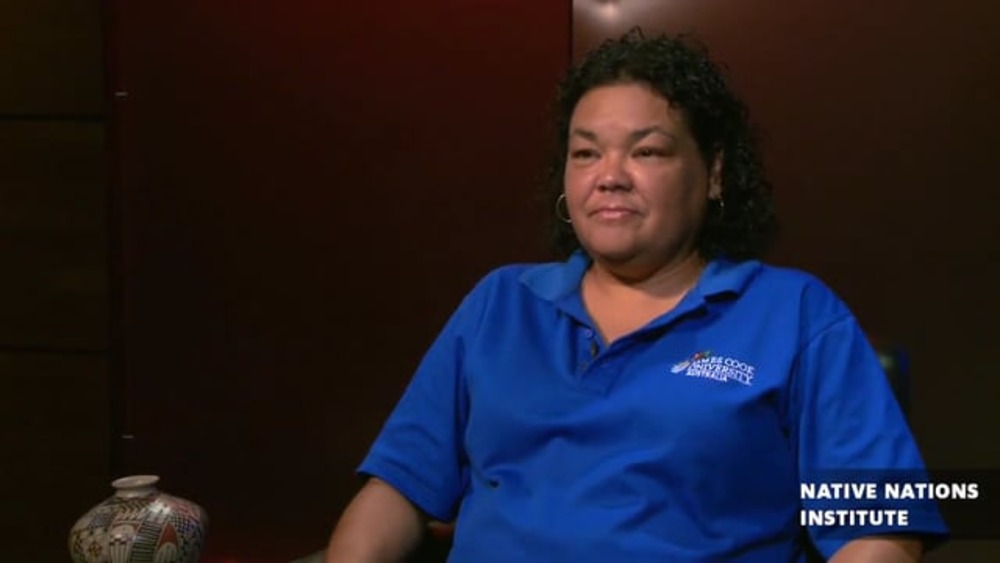
Michelle Deshong: Australian Aboriginal Methods of Self-Governance
Michelle Deshong draws her connections to Kuku Yalanji and Butchulla nations. She is a 2015 recipient of the Australian-American Fulbright Indigenous Professional Scholarship that funded her residency at the Native Nations Institute housed within the Udall Center for Studies and Public…
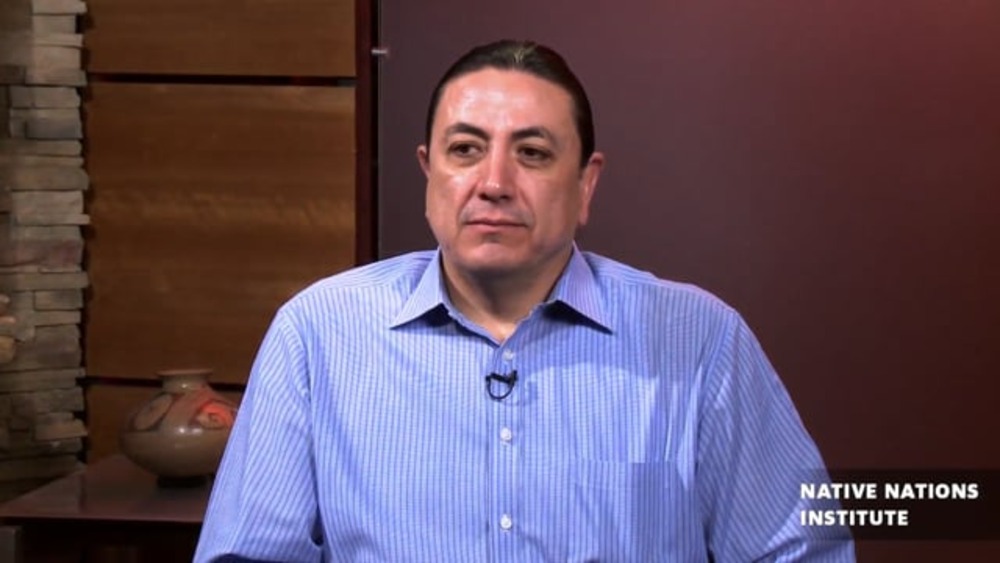
Chairman Dave Archambault II: Laying the Foundation for Tribal Leadership and Self-governance
Chairman Archambault’s wealth and breadth of knowledge and experience in the tribal labor and workforce development arena is unparalleled. He currently serves as the chief executive officer of one of the largest tribes in the Dakotas, leading 500 tribal government employees and overseeing an array…
